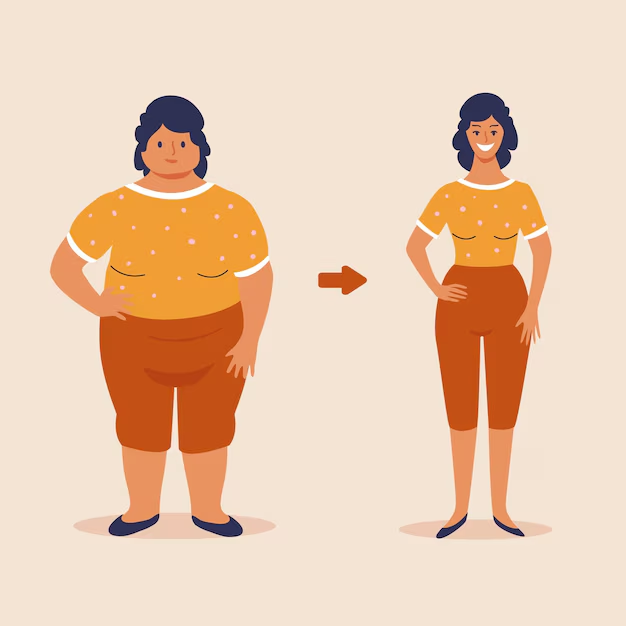
In the world of health and fitness, misinformation about weight loss is rampant. Many people hold onto misconceptions that can hinder their weight loss efforts and lead to unhealthy habits. In this blog post, we’ll debunk some of the most common weight loss myths and provide clarity on the science behind effective weight management.
Myth 1: Carbs Are Bad for You
The Truth
Carbohydrates often get a bad rap, but they are not inherently bad. In fact, they are a vital source of energy for your body, particularly for your brain and muscles. The key is to differentiate between simple and complex carbohydrates:
- Simple Carbohydrates: Found in sugary snacks and drinks, these can cause spikes in blood sugar and lead to weight gain when consumed in excess.
- Complex Carbohydrates: Found in whole grains, legumes, and vegetables, these provide essential nutrients and fiber, aiding in digestion and promoting satiety.
Conclusion
Incorporating healthy carbohydrates into your diet is important for balanced nutrition. Focus on whole, unprocessed carbs and moderation rather than completely eliminating them.
Myth 2: You Can Target Fat Loss in Specific Areas
The Truth
Many people believe in “spot reduction,” the idea that you can lose fat in specific areas of the body through targeted exercises. However, research shows that spot reduction is largely a myth. When you lose weight, your body decides where the fat comes from, and this process varies from person to person based on genetics, body composition, and hormonal factors.
Conclusion
Instead of focusing on targeting specific areas, adopt a comprehensive approach that includes a combination of cardiovascular exercise, strength training, and a healthy diet to promote overall fat loss.
Myth 3: Skipping Meals Helps You Lose Weight
The Truth
Skipping meals may seem like a quick way to reduce calorie intake, but it can lead to negative consequences. Missing meals can slow your metabolism, lead to overeating later in the day, and cause fluctuations in blood sugar levels. Additionally, it can result in nutrient deficiencies that can harm your health in the long run.
Conclusion
Instead of skipping meals, focus on eating balanced meals and healthy snacks throughout the day to maintain energy levels and support your weight loss goals.
Myth 4: Fat Makes You Fat
The Truth
Fat is an essential nutrient that your body needs for various functions, including hormone production and nutrient absorption. The real issue lies in the type and amount of fat consumed.
- Healthy Fats: Found in avocados, nuts, seeds, and olive oil, these fats can promote satiety and improve heart health.
- Unhealthy Fats: Trans fats and excessive saturated fats, often found in processed foods, can contribute to weight gain and health issues.
Conclusion
Incorporate healthy fats into your diet in moderation. They can help you feel full and satisfied without leading to weight gain.
Myth 5: All Calories Are Created Equal
The Truth
While it’s true that weight loss ultimately depends on burning more calories than you consume, not all calories provide the same nutritional value. Foods differ in how they affect your metabolism, hunger, and overall health:
- Nutrient-Dense Foods: Foods rich in vitamins, minerals, and fiber (like fruits, vegetables, and whole grains) provide lasting energy and help you feel full.
- Empty Calories: Foods high in added sugars and unhealthy fats may offer little nutritional value and can lead to overeating.
Conclusion
Focus on the quality of your calories by choosing nutrient-dense foods that nourish your body and support your weight loss efforts.
Myth 6: Supplements Are a Magic Solution for Weight Loss
The Truth
Many people turn to weight loss supplements and pills in hopes of achieving quick results. However, there is no magic pill for weight loss. Most supplements lack scientific backing and can even pose health risks. Sustainable weight loss comes from lifestyle changes that include a balanced diet and regular physical activity.
Conclusion
Be cautious of supplements promising quick fixes. Instead, focus on adopting healthy habits that you can maintain in the long run.
Conclusion
Dispelling these common weight loss myths can empower you to make informed choices about your health and fitness journey. By understanding the truths behind these misconceptions, you can adopt a more balanced and effective approach to weight management. Remember, achieving lasting weight loss is a gradual process that involves making sustainable lifestyle changes rather than following fad diets or relying on quick fixes.
Call to Action
If you’ve been influenced by any of these myths, it’s time to reassess your approach to weight loss. Embrace a holistic strategy that includes proper nutrition, regular exercise, and healthy lifestyle choices to achieve your weight loss goals sustainably!

